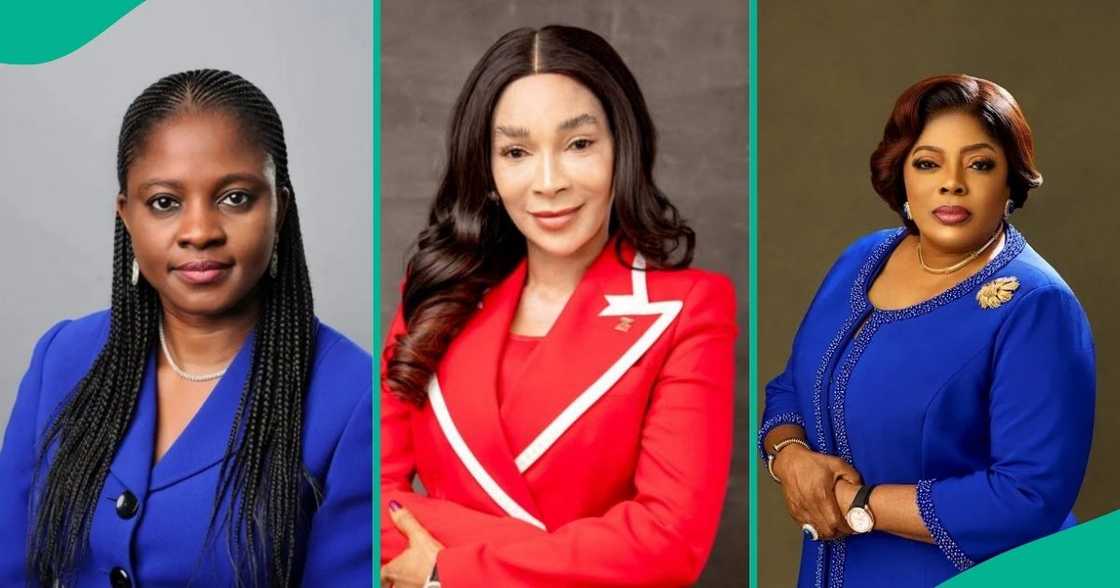Nigeria’s Top Female CEOs Managing ₦81 Trillion in Assets
The number of women at the helm of Nigeria’s largest corporations is on the rise, with 15 female chief executives now leading publicly listed companies on the Nigerian Exchange Group (NGX). Together,...

The number of women at the helm of Nigeria’s largest corporations is on the rise, with 15 female chief executives now leading publicly listed companies on the Nigerian Exchange Group (NGX).
Together, these corporate powerhouses oversee assets valued at more than ₦81 trillion, spanning sectors such as banking, financial services, manufacturing, healthcare, insurance, and aviation.
Many of these executives bring decades of experience from both local and international institutions, blending strategic vision with proven leadership in finance, operations, and innovation. Their rise reflects a growing commitment to inclusivity, merit-based governance, and gender diversity in Nigeria’s boardrooms.
Beyond driving profits and shareholder value, these women are also serving as role models for the next generation of female leaders, demonstrating that gender is no barrier to holding the top seat in corporate Nigeria.
Here are some of the most influential women shaping Nigeria’s corporate landscape:
-
Bolaji Agbede — Acting GCEO, Access Holdings Plc (₦41.5 trillion assets)
-
Adaora Umeoji — Group MD, Zenith Bank (₦29.96 trillion assets)
-
Nneka Onyeali-Ikpe — CEO, Fidelity Bank Plc (₦8.82 trillion assets)
-
Owen Omogiafo — President/Group CEO, Transcorp Plc (₦751.56 billion assets)
-
Uzoamaka Oshogwe — MD/CEO, Transcorp Hotels Plc (₦140.70 billion assets)
-
Oyeyimika Adeboye — MD, Cadbury Nigeria Plc (₦72.44 billion assets)
-
Dukor Anderline Ndidi — Co-CEO, MeCure Healthcare Ltd (₦54.84 billion assets)
-
Adenike Aboderin — CEO, SAHCO Plc (₦41.78 billion assets)
-
Adaobi Nwakuche — CEO, Veritas Kapital Assurance Plc (₦37.54 billion assets)
-
Catherine Nwosu — CEO, Africa Prudential Plc (₦34.85 billion assets)
Their influence goes beyond corporate boardrooms, with several holding international certifications, board memberships, and policy-shaping roles across industries.
Observers say their emergence at the very top marks a historic shift in gender representation within Nigeria’s corporate sector, though advocates stress that more work is needed to deepen equality in leadership across both private and public institutions.









No Comment! Be the first one.